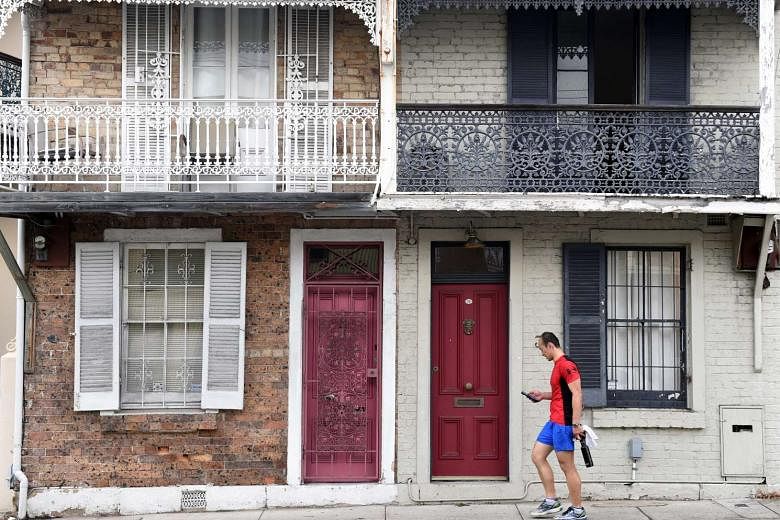SYDNEY (BLOOMBERG) - Australian home owners look set to pay for regulators' efforts to make lenders safer in the event of a financial crisis, after Westpac Banking raised borrowing costs for mortgage holders.
Westpac's first increase in five years for owner occupiers may be followed by other major lenders as they respond to more stringent regulatory burdens.
Homeowners on an average mortgage with Australia's second-biggest lender will have to shell out an extra A$500 (S$503) a year, the Herald Sun newspaper estimated.
Westpac's shock boosting of variable mortgage rates for owner-occupiers by 0.2 percentage points, to 5.68 per cent, would add about A$14,000 to an average A$300,000, 30-year-loan, said the paper.
On a larger scale, higher borrowing costs can risk crimping consumer spending and weigh on housing demand, weakening support for an economy already struggling to regain momentum amid tumbling commodity prices and a drop in mining investment.
Traders boosted their bets on the prospects of an additional interest-rate cut from the Reserve Bank of Australia to offset the damage. While concern that the housing market was becoming frothy had already spurred higher rates for landlord mortgages in recent months, the increase for owner occupiers took many analysts by surprise.
"A move by a bank to raise mortgage rates represents a tightening in financial conditions which the Reserve Bank may not have been looking for, so it therefore increases the probability that the RBA will respond," said Mr Andrew Ticehurst, a Sydney-based interest-rate strategist at Nomura Holdings. "That tightening in financial conditions would obviously be more appreciable if the other banks follow suit."
The decision to lift home-loan rates in an economy growing at a slower pace than its historical average comes after Australian banking regulators said increased risk weights for mortgages will take effect next year. It also follows a request by the prudential overseer to contain growth in landlord loans to cool a rampant housing market.
Goldman Sachs said Westpac's move adds to the risks for Australia's economy, which also faces the prospects of a severe drought.
"The combination of preemptive independent interest rate hikes by the banking system and the emergence of a new and significant threat to Australia's economic growth comes at a particularly uncomfortable time in Australia's economic cycle," Goldman economists led by Mr Tim Toohey wrote in a note on Wednesday.
They said it was "highly likely" that Australia's other major lenders would also increase their mortgage rates and predicted that would probably prompt the RBA to cut its benchmark both in November and again in the first quarter of 2016.
While home prices increased 28 per cent in the three years through September, there have been some signs of softening within the market of late. New residential building activity fell 3.4 per cent in the three months through June compared with the previous quarter, government data showed on Wednesday.
"The credit rationing aimed at curbing investor activity is having a broad impact and risks generating a sharper fall," said Mr Harley Dale, chief economist at Australia's Housing Industry Association.
The most recent boost in mortgage rates, if replicated by other lenders and combined with earlier increases focused on landlord lending, could potentially shave as much as half a percentage point from household consumption growth, Royal Bank of Canada strategist Michael Turner estimated in a note to clients on Wednesday.
Australia's economy grew at just a 2 per cent annual pace in the three months through June, the weakest performance since the third quarter of 2013, while consumer price inflation is running at just 1.5 per cent. A report due on Thursday is expected to show unemployment holding at 6.2 per cent, according to a Bloomberg survey of economists. Joblessness earlier this year reached 6.3 per cent, the most since 2002.

